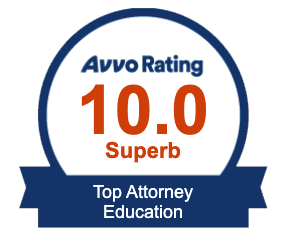Some parents enroll their children with disabilities in a charter school instead of a traditional public school because they believe that the charter school will provide a better special educaiton education for them. Is this true? Well, like most things it depends upon the charter school that a parent chooses for their child. Some charter schools have a good reputation for serving children with disabilities and others do not. How will you know whether the charter school you choose is better for your child than the public school?
You should balance the positive and negative aspects of the public school your child is attending with the positive and negative aspects of the charter school that you propose to enroll your child. There is no perfect school for a child with a disability. There is no perfect school that will ensure your child always makes educational progress. There is no perfect school that will ensure that your child’s teachers will always keep and maintain open lines of communication and keep you updated with all of your child’s instruction and progress in class. Every school has its own issues to address. But a parent may be totally frustrated with the public school that his or her child is attending so what is the option? Charter school? Private school? Homeschooling? These are options that a parent must weigh in deciding to remove their child from public school. A charter school provides special education at no cost to your child because it must comply with all federal laws such as the IDEA in educating your child. A private school does not. And homeschooling significantly diminshes a child’s access to only related services such as speech and language therapy, occupational therapy, and physical therapy from the public school system.
If you are seriously considering a charter school, then visit the school first and ask lots of questions. These questions would focus on: (1) what are the qualifications of the teachers; (2) what is the educational methodology that is usually used for a child with autism or specific learning disability, for example? (3) does the charter school contract for related services or does the school provide in-house related services? (4) what are the continuum of educational placements at the school for my child? (5) whether there have been State complaints, OCR complaints or other complaints by parents against the charter school in the past, and if so, then what was the outcome? (6) the general reputation of the charter school in the community; (7) the financial stability and funding of the charter school; and (7) the quality of administrastors at the school. These are just a few of the questions that you should ask before enrolling your child into a charter school. Whether the charter school is complying the with IDEA can be detemined by obtaining monitorin reports from the State Department of Education.

